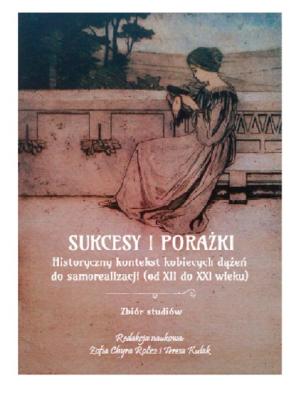Zofia Nałkowska (1884–1954). Sukcesy i porażki „kobiecości poszukującej”
Streszczenie
This paper contains an analysis of Zofia Nałkowska’s Diaries, written from
1899 to the beginning of Wor ld War I, from the time when her father’s encouragement
pushed her into being active in the women’s emancipation movement as a burning
sociological and moral problem. She continued these personal interests in her feminine
literary output, but her literary activity developed independently in the process of her
scientific and cultural development. This literary output, mainly with erotic motifs and
women’s emancipation topics, had led her to professional and personal success, with her
great subtle and intere sting linking of feminine biology, feminine erotic events
concerning the life of her heroines and with her attempts to advance moral freedom.
After World War I, leaving her “feminine inquiring”, she changed her creative interests
towards feminine – masculi ne relations, with the background of political and social
problems in the revived Second Republic of Poland. She was the first woman – an
intellectual and writer writer- who, owing to her continually developing intellect and talent,
reached a high social positio n. At the same time she manifested her feminism and
elegance, creating an image of a modern and liberated woman, conscious of her sex and
erotic values; for her, men’s adoration and admiration was a source of success and
personal happiness happiness.
Pobrania
Opublikowane
Licencja

Utwór dostępny jest na licencji Creative Commons Uznanie autorstwa – Użycie niekomercyjne 4.0 Międzynarodowe.





